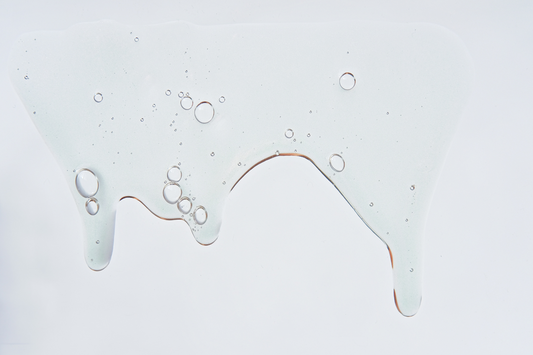Collagen is the most abundant protein in your body, making up about 75% of your skin. Think of it like the scaffolding that keeps everything firm, smooth, and bouncy.
When we’re younger, collagen production is strong, which is why kids and teens have plump, wrinkle-free skin. But starting in our 20s, our collagen production begins to slow down—dropping about 1% every year. That’s when fine lines, sagging, and dryness start to show.
How Collagen Affects Your Skin
Here’s what collagen is actually doing beneath the surface:
- Firmness & Elasticity – Collagen keeps your skin tight and lifted. Less collagen = looser, sagging skin.
- Hydration – Collagen supports your skin barrier, which helps lock in moisture.
- Smoothness – Higher collagen levels mean fewer fine lines and wrinkles.
- Skin Repair – Collagen helps your skin recover from sun damage and environmental stress.
Can Collagen Supplements Really Help?
This is where a lot of people wonder if it’s hype. The truth: yes, research shows collagen peptides can improve skin.
Because collagen peptides are broken down into smaller amino acids, your body can absorb them and use them where needed. Several clinical studies have found that daily collagen supplementation can:
- Increase skin hydration
- Improve elasticity and firmness
- Reduce wrinkle depth
- Support overall skin smoothness
It’s not an overnight fix, but many people notice results in about 8–12 weeks of consistent use.
Collagen vs. Collagen Creams
Important note: collagen creams don’t work the same way as collagen powders or supplements.
- Topical creams mostly hydrate the surface of your skin.
- Ingestible collagen (powders, capsules, or drinks) gets absorbed into your bloodstream and can actually influence collagen production in deeper skin layers.
If you want long-term changes, supplements are more effective than creams alone.
Foods That Support Collagen
While supplements are convenient, you can also support your skin with collagen-friendly foods:
- Bone broth
- Chicken skin & fish skin
- Egg whites
- Vitamin C–rich foods (oranges, bell peppers, strawberries)
- Zinc & copper sources (nuts, seeds, shellfish)
These nutrients help your body naturally produce and protect collagen.
Quick FAQ
Q: How long before I see results from collagen?
A: Usually around 8–12 weeks with daily use.
Q: Can I take collagen if I already eat protein?
A: Yes—collagen has unique amino acids (glycine, proline, hydroxyproline) you don’t get in large amounts from regular protein.
Q: Is collagen safe for everyone?
A: For most people, yes. But if you’re pregnant or breastfeeding, always check with your doctor first.
Final Takeaway
Collagen is not just hype—it’s the protein that literally keeps your skin youthful. As natural production slows with age, supplementation and collagen-rich foods can help restore hydration, firmness, and smoothness.
✨ Bottom line: If glowing, bouncy skin is your goal, collagen can absolutely help you get there.



